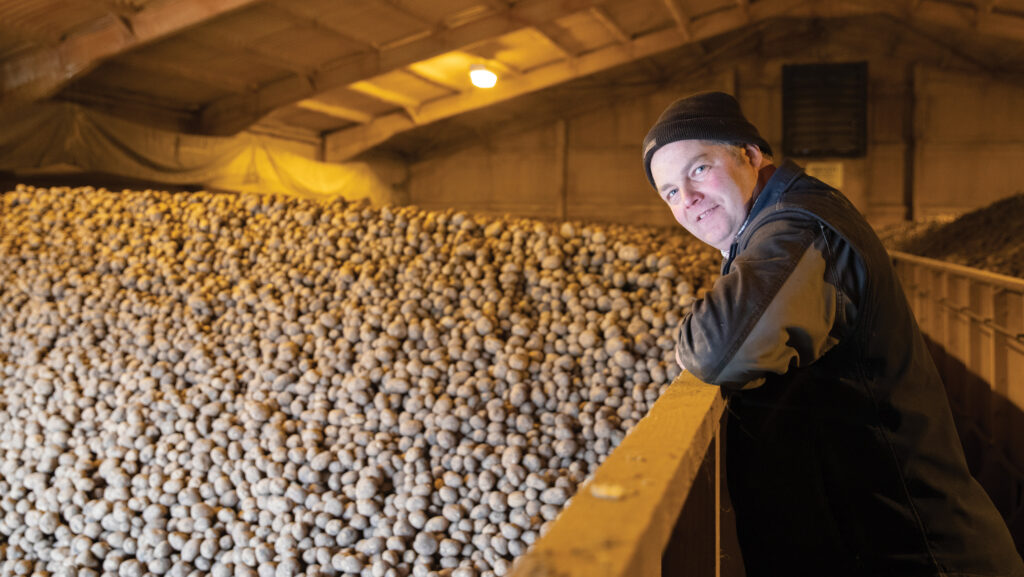Farmer Focus: Preparing kit and buildings for harvest
 Andrew Wilson © Angela Waites Photography
Andrew Wilson © Angela Waites Photography Well, haytime has passed and it will soon be harvest again, so our focus currently is mostly on preparing buildings, machinery and people for the task ahead.
There’s a phrase I hear regularly that irks me: “Farmers must… do better.”
It’s easy for others to say yet puts us under ever more pressure on the ground.
See also: New guide released to help tackle costly potato pests
A few years ago, my then apprentice went on a tractor-driving course for 13-15 year olds and got a lot out of it.
Unfortunately, my current apprentice was already 16 when he joined us, so missed such an opportunity.
It strikes me that such a thing would be a useful aide to training harvest students and inexperienced people in the art of handling weight on wheels, anticipating danger and keeping safe.
It need only be a training video, but if it also included a section on daily checks, how to inspect brakes work properly and what to do if xyz were to happen, then perhaps reducing seasonal accidents might be easier.
We have a simple checklist for our trailer servicing which ensures nothing gets missed in an annual strip down.
Any damaged or aged pipes or wires are replaced, and brakes and hubs are stripped, cleaned and worn parts replaced.
Suspension is checked, bushes measured, greaseways inspected and things such as worn floors are attended to.
Our kit isn’t particularly new, but we like to keep it in decent order. Time servicing now is cheaper than downtime in season – or worse, an accident.
We have a proper personnel basket for our telehandlers that fits securely to the carriage as a bucket would, not slid onto pallet tines like some.
If I use it to change the lightbulb in my grading shed in season, then it is legal to do so, because it is technically an emergency.
Should I use the same equipment to reach the same light in the same shed to clean the lens as pre-season maintenance, then it becomes a planned operation, and necessitates hiring a cherry picker or some such equipment.
These rules are ill thought out, impractical, and a big reason why better safety kit isn’t often found on farms.
Practical solutions that make safety easy are what saves lives, not more legislation devised by people who have no practical knowledge or experience of the job in hand.


